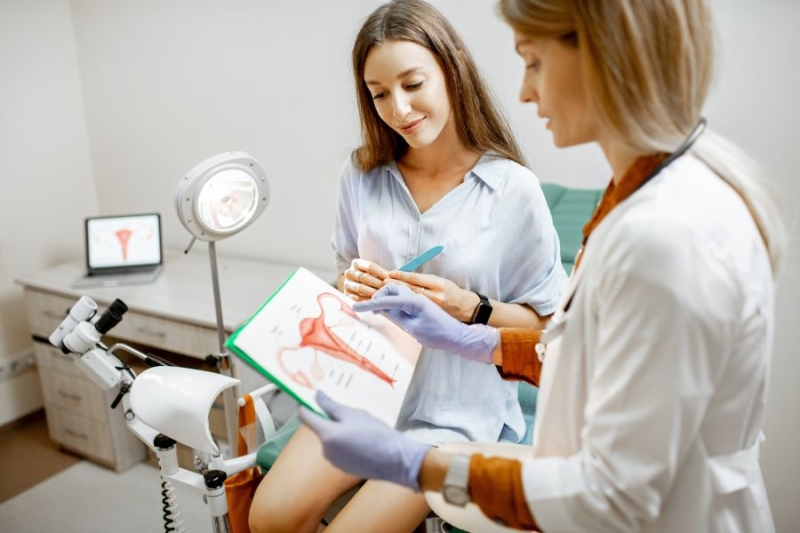26 Sep 2024 — Industry players see “abundant” opportunities for biotic solutions targeting women, citing an evolving recognition of women’s health needs and rising awareness of proactive self-care. We catch up with experts from Gnosis by Lesaffre, Lallemand Health Solutions, ADM and AB-Biotics to discuss the evolving biotics market for women’s health, including the development of targeted solutions backed by science and biotics for vaginal health.
Innova Market Insights data indicates a significant increase in the launch of women’s specialty supplements containing pro- and prebiotic ingredients, with a 23% growth from July 2019 to June 2024.
“There is a growing recognition of the unique health needs and considerations of women throughout their lives, and the demand for better female health is being driven by several factors,” Emilie Puppinck, biotics product manager at Gnosis by Lesaffre, tells Nutrition Insight.
“The application of probiotics in women’s health supplements and menopause-focused launches are gaining ground. Probiotics are acting beyond the gut, thus addressing women’s needs. For example, maintaining vaginal health is now made easy with probiotic supplements, and we can find biotic solutions for several steps of women’s lives, such as fertility and breastfeeding. Bacteria are currently the most popular in this area.”
Elodie Aragon, product manager at Lallemand Health Solutions, adds that a large consumer base and an increasing variety of health supplements targeting different conditions drive the biotics for women market. “Additionally, evolving women’s health trends and rising awareness about health and nutrition contribute to the growing preference for products aimed at maintaining health.”
“Women are key consumers in proactive self-care, seeking natural ways to maintain well-being. Hormonal fluctuations throughout the menstrual cycle affect physical and emotional health, influencing overall health.”
Meeting the needs of women
Paula Limena, VP of global marketing health and wellness at ADM, underscores substantial opportunities for biotics to support women at specific times in their lives.
She recommends: “Manufacturers leveraging microbiome solutions must also think beyond traditional formats (capsules and topicals) and explore formats prioritizing convenience and taste. Gummies, yogurt drops, extruded snacks and drinkable formats are all quick, easy and delicious ways women can get the targeted support they need.”

Aragon says that evolving women’s health trends and rising nutrition awareness help drive the market.At the same time, she cautions that certain biotic strains cannot survive harsh processing conditions like high heat or water content.
“Postbiotics and spore-forming probiotics are ideal solutions for this. Our heat-treated postbiotic versions of BPL1 (Bifidobacterium animalis subsp. lactis CECT8145) and ES1 (B. longum CECT7347) can survive during tough formulation conditions, and our spore-forming probiotic DE111 (Bacillus subtilis) can retain its functionality through harsh environments that may otherwise damage conventional probiotics.”
Limena sees women taking more control over their health from young adulthood through menopause. “Whether maintaining a healthy diet during pregnancy or managing metabolic health during menopause, they actively seek functional solutions — and biotics can help.”
In addition, she points to the bidirectional relationship between estrogen levels and microbiome modulation. “Utilizing biotics to modulate the microbiome can be vastly beneficial as estrogen levels decline during menopause.”
“The microbiome arena is an ever-developing territory. Navigating biotic usage requires extensive research and formulation expertise to make sure health and wellness products meet the needs of women where and when they need it,” she asserts.
Targeted innovations
Miquel Bonachera, co-founder of AB-Biotics, highlights the company’s aim to provide scientifically backed, effective probiotic solutions that meet the evolving demands of the women’s health market by investing in research and innovation.

Limena suggests that manufacturers explore formats, such as gummies, that prioritize convenience and taste in their microbiome solutions.He explains that biotics traditionally follow a “top-down” approach, using unspecified probiotic strains to support gut health, assuming that a healthy gut will positively impact other health areas as well.
“However, at AB-Biotics, we’re approaching the development of our strains with a ‘bottom-up’ approach,” Bonachera continues. “By identifying and utilizing specific strains, we’re able to develop probiotics that not only balance the gut microbiota but crucially target critical areas of women’s health as a priority, making our blends much more effective.”
“The ability to address such specific health concerns sets biotics apart from other ingredient categories, which may not offer the same precision or evidence-based effectiveness.”
An increasing interest in biotics for women’s health and research advances leads to an “abundance of opportunities” for supplement brands, Bonachera adds.
However, he also highlights crucial challenges that need to be addressed, such as “the need for rigorous scientific validation to differentiate truly effective products from those that offer generic benefits.”
“At AB-Biotics, we are addressing this challenge by focusing our innovation efforts on characterizing and developing targeted probiotic solutions that deliver specific health benefits. Our approach goes beyond generic gut modulation as we identify and characterize specific mechanisms of action that directly impact the microbiome and support women’s health.”
“This precise approach allows us to develop probiotic blends tailored to women’s unique needs, offering more than general health support. We are persistently investigating under-researched therapeutic areas of women’s health such as menopause and broadening our research into other health areas such as fertility and prenatal health,” says Bonachera.
Vaginal microbiome
The experts underscore that the vaginal microbiota is crucial for women’s health. Bonachera explains that healthy vaginal microbiota predominantly consists of Lactobacilli, which play a vital role in maintaining the natural acidic pH of the vagina and preventing colonization of undesirable microorganisms.
“However, following treatments with antibiotics or antifungals, the balance of this healthy microbiota can be impacted, leading to a risk of overgrowth of pathogens. L. gasseri KABP 064, marketed as Gyntima Balance, was specifically selected to support and restore the natural balance of the healthy microbiota, reducing the risk of infection.”

By identifying and utilizing specific strains, AB-Biotics aims to develop probiotics that target critical areas of women’s health, says Bonachera.Gnosis by Lesaffre’s Puppinck also points to several factors that can disrupt the typical ecological balance of the vaginal microbiota that lead to the overgrowth of pathogens, such as menstrual cycles, stress or contraception. “To nurture a woman’s intimate health, Gnosis offers Quatreflora, a probiotic yeast, unlike anything on the market, with proven efficacy in clinical studies.”
Clinical research supports Quatreflora’s ability to protect the vaginal epithelium by forming a barrier, reduce inflammation induced by virulence factors in candidiasis fungal infection, decrease vaginal load of Candida albicans yeast by 57% versus 33% in the placebo group, inhibit recurrence of vaginal infections by 54% and provide an anti-bacterial effect versus the bacterium Gardnerella vaginalis.
Puppinck explains Quatreflora is derived from a Lesaffre patented and proprietary strain of Saccharomyces cerevisiae CNCM I-3856 and is “ideal for oral use dietary supplements,” encouraging easier administration for compliance. “This also means it can exert an early antipathogenic action in the intestine, thus inhibiting the recurrence of vaginal infections,” she adds.
“Quatreflora is the only probiotic yeast dedicated to vaginal health. While all other biotics are bacteria, biotic yeast can provide some key advantages, like no antibiotic interaction and no colonization. It offers three-year stability at ambient temperatures and is more resistant in the gastrointestinal tract.”
Application areas
In addition to Lallemand Health Solutions’ orally administered probiotic L. plantarum Rosella to promote vaginal health, Health Canada recently also recognized the efficacy of this strain in women’s health through vaginal application. Rosella is supported by six clinical studies, of which two by oral intake and four by vaginal application, which demonstrate its effectiveness in promoting vaginal health.
“This confirmation opens new possibilities for Canadian women seeking natural solutions for their intimate well-being,” says Aragon.

Gnosis by Lesaffre developed Quatreflora, a probiotic yeast with proven efficacy, to support the vaginal microbiome.Health Canada grants specific health claims for L. plantarum Rosella, including to “support vaginal or female health by vaginal application,” “help support a healthy vaginal microflora,” “maintain vaginal microbiome health” and “reduce vaginal pH to healthy levels.”
When combined with antifungal treatment, the product can also help delay, lengthen or improve relapse time for (recurrent) vulvovaginal candidiasis. Moreover, in this combination, the product can claim to reduce clinical signs of (recurrent) vulvovaginal candidiasis, such as itching, burning, pain or swelling.
Solange Henoud, the company’s VP of regulatory and compliance, highlights that probiotics increasingly appeal to women seeking self-care for their intimate health.
“A probiotic like Rosella represents a significant step forward in supporting women’s intimate health, offering a range of benefits from maintenance of health to a natural alternative for addressing vaginal concerns, especially recurrent vulvovaginal candidiasis when applied locally.”
“It is gratifying to see that Canadian authorities have recognized its efficacy, both orally and as a vaginal application,” Henoud continues. “We believe these approved health claims will empower Canadian women to make informed choices and prioritize their well-being.”
By Jolanda van Hal

